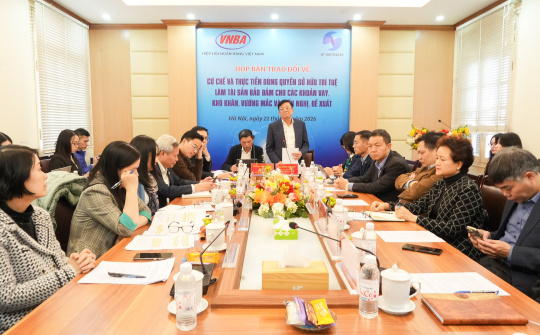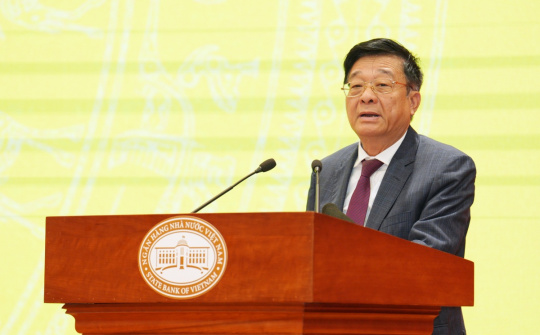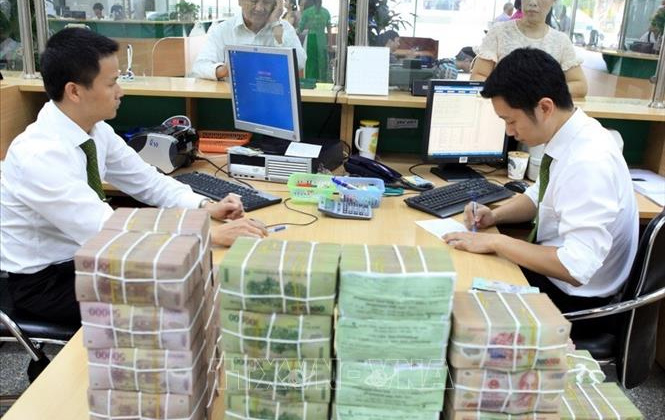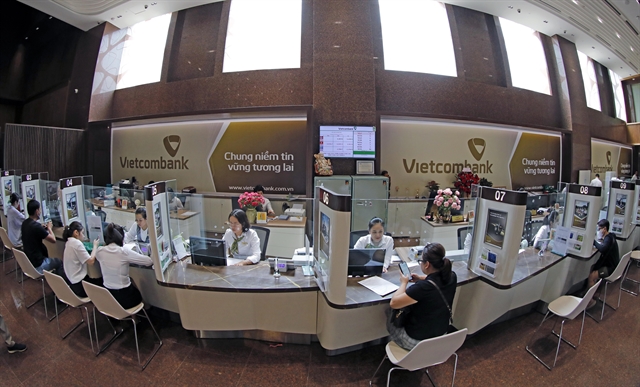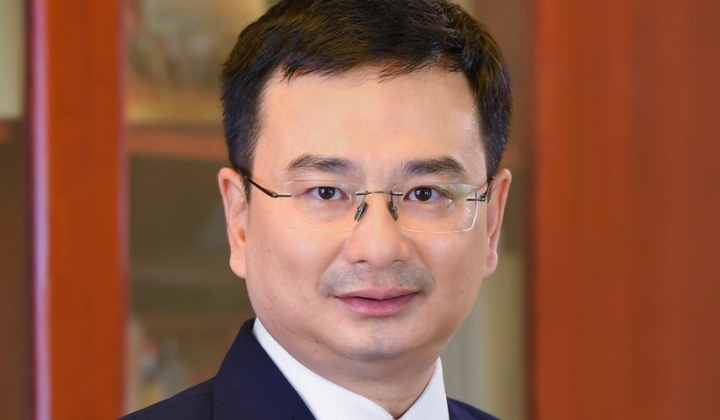Speaking at the opening ceremony of the Conference - Exhibition, Dr. Nguyen Quoc Hung, Vice Chairman cum General Secretary of the Vietnam Banks Association, said that the banking industry has been witnessing a strong transformation, from the application of new technologies such as artificial intelligence (AI), blockchain, to the development of digital financial products and services.

Dr. Nguyen Quoc Hung, Vice Chairman cum General Secretary of VNBA
These changes not only help improve operational efficiency but also create many new opportunities for banks in serving customers and enhancing user experience. However, in addition to opportunities, the banking industry also faces many challenges.
Regarding the increase in online banking services, mobile applications and electronic payment solutions, Dr. Nguyen Quoc Hung said that cashless payment activities and digital banking transformation continue to achieve positive results, important payment systems operate smoothly and safely. More than 87% of adults have a payment account at a bank and many banks have processed more than 95% of transactions on digital channels.
In the first 7 months of 2024 compared to the same period in 2023, non-cash payment transactions increased by 58.44% in quantity and 35.13% in value; via the internet channel increased by 49.83% and 33.72% respectively; via mobile phone channels increased by 59.09% and 37.97% respectively, transactions via QR Code increased by 106.83% in quantity and 105.51% in value. Transactions via ATM decreased by 13.35% in quantity and 6.13% in value compared to the same period in 2023, showing the trend of people shifting to non-cash payments.
Dr. Nguyen Quoc Hung commented that security and safety in payment activities and information systems applied to banking operations, as well as high-tech crime prevention activities in the banking sector continue to be enhanced. To date, more than 37 million customers have successfully registered biometric information. This is considered a positive step to help minimize risks and protect users from fraud and scams.
According to Vice Chairman cum General Secretary of the Vietnam Banks Association Nguyen Quoc Hung, in order to provide banking products and services with high technology content and highly personalized services to enhance customer experience, data collection, exploitation and processing are always considered important. The rapid development of data-driven business strategies in the banking industry has created significant benefits. Many credit institutions have deployed solutions that allow customers to open payment accounts based on population data authentication; allow identification and verification of customer information using chip-based citizen identification cards or VNeID applications; clean customer information with the National Population Database; optimize the lending process with credit scoring solutions, multidimensional information authentication using population data... The entire industry has focused on cleaning all 51 million customer data at the Vietnam National Credit Information Center and credit institutions, ensuring that 100% of customer data is verified with the national population database. Dr. Hung assessed that the organization of the Smart Banking Conference - Exhibition in 2024 with the theme "Shaping the digital future for the Banking industry: Safe and sustainable operating strategy" is very necessary and timely.
Dr. Hung stressed that this is also a forum for management agencies, researchers and the credit institution community to discuss regulations and legal requirements, while creating conditions for commercial banks and credit institutions to grasp information, exchange experiences and share difficulties as well as propose solutions to support the banking industry in successful and sustainable digital transformation". He hopes that through the Workshop - Exhibition, experts, scientists and leaders in the banking industry will focus on discussing 3 issues:
First, discuss and evaluate some of the main digital transformation results of the banking industry, especially in the field of digital data, while clarifying the shortcomings, limitations and proposing and recommending policies and guidelines towards perfecting the legal framework to facilitate rapid and sustainable digital transformation.
Second, discuss and propose modern technological solutions, share good models and innovative ways of doing things; Share solutions for information exchange, data collection, classification, data cleaning, database building and analysis to improve operational efficiency and sustainable development.
Third, discuss and share experiences and trends of countries around the world on digital transformation in the banking sector, thereby proposing solutions to strongly apply new technologies (big data analysis, machine learning, cloud computing, artificial intelligence, blockchain, internet of things) to the fields of operation of the banking industry.

Conference's view
Affirming that over the past time, the entire banking industry has carried out a strong digital transformation with many positive results, bringing efficiency to the whole society, people and businesses, Dr. Nguyen Quoc Hung hopes that the Smart Banking Conference - Exhibition in 2024 will continue to promote its role as a bridge between senior leaders in the banking industry with prestigious domestic and foreign experts, contributing to the digital transformation of the banking industry in particular and the national digital transformation in general.
VNBA News




